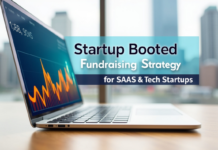The workplace is changing. With a mix of generations now making up the workforce and more employees working hybrid between the office and home, human resources (HR) practices need to evolve to meet these new employee expectations. This article will examine some of the adjustments HR can make to recruitment, benefits, training and more to suit today’s workforce in the UK better.
Key Takeaways
- HR practices must adapt to meet evolving employee expectations in a hybrid, multi-generational workforce.
- Recruiting top talent requires a focus on company culture and flexible work options, while onboarding should cater to diverse generations.
- Implementing flexible work policies and health provisions helps balance work-life expectations and promotes employee wellness.
- Continuous skills development and DEI initiatives foster an inclusive and engaging workplace culture.
- Utilizing HR technology enhances efficiency, automates tasks, and supports strategic decision-making to meet employee expectations.
Table of contents
Recruiting to Attract Top Talent
Hiring has changed significantly, with more emphasis on company culture and work-life balance. Recruitment agencies like Allen Associates report that younger workers especially want flexibility, so highlighting hybrid or remote options in job ads is key. HR should also stay current on worktime regulations through a regular HR review to ensure compliance is highlighted during the recruitment process. The recruitment process itself should be streamlined and positive, as candidates will assess the company’s values throughout.
Onboarding for All Generations to Meet Employee Expectations
With millennials, Gen Z, Gen X and baby boomers now working together, onboarding needs to get all generations onboard quickly. A buddy system pairs new hires with an experienced employee for mentoring. Checklists and tutorials help speed up training on systems and processes. Consider job shadowing so new starters can see day-to-day activities. Feedback surveys identify any onboarding gaps.
Flexible Working for Work-Life Balance
Enabling flexible work is highly valued today. HR needs clear hybrid and remote working policies that give employees autonomy while maintaining collaboration and work standards. Core hours for meetings can be surrounded by flexible hours for focused work. Digital tools like instant messaging and project management systems are essential for communication and coordination across locations. Output should be emphasised over set hours.
Health and Well-Being Provisions
With work stress rising, competitive health and well-being provisions meet employee expectations. Private medical insurance, dental plans, gym discounts and employee assistance programs should be offered. Free fruit, healthy snacks and stand-up desks promote workplace wellness. Seminars on mental health awareness and resilience help normalize the conversation. Volunteering and charity fundraisers let people contribute to causes they care about.
A strong health plan is what keeps workers engaged, supported, and confident that their well-being is a genuine priority rather than an afterthought. The professionals over at Hummel Group Insurance explain how tailored benefits can better align with workforce needs while supporting long-term retention and satisfaction. This kind of structured approach allows employers to balance cost control with meaningful coverage that employees actually use and value.
Continuous Skills Development
In fast-changing fields, continuous learning is a must. HR should provide access to online training courses and resources like LinkedIn Learning. Skills audits identify development areas, while regular one-on-ones allow managers to discuss growth plans. Courses and webinars can upskill teams on new tech, tools and best practices. Conferences, industry events, and networking keep employees engaged and growing. Mentorship programs nurture cross-generational learning.
DEI Efforts for an Inclusive Culture
HR has a key role in nurturing diversity, equity and inclusion (DEI) by removing bias from hiring and reviews, setting representation goals, educating on topics like microaggressions, privilege, allyship, and intersectionality, and giving everyone a voice through forums and focus groups. DEI training highlights the business benefits of diverse teams, while community partnerships and belonging networks support underrepresented groups. Regular surveys and feedback loops help gauge D&I progress and inform future strategies.
Compensation Benchmarking
With inflation rising and a competitive job market, compensation needs to match employee expectations and external benchmarks. HR should research industry rates, taking into account skills, experience, role complexity, and location. Creative benefits like extra holidays, sabbaticals, wellness stipends, profit sharing, and employee share schemes can supplement pay. Bonuses for productivity, innovation, or hitting KPIs incentivize results. Salary should be regularly benchmarked, and timely adjustments made when needed to retain top talent.
HR Technology for Efficiency
Automating administrative tasks frees up HR to be more strategic. AI resume screening, video interviews, online onboarding portals and e-signing streamline recruitment and onboarding. Self-service HR portals let employees access policies, book leaves, submit expenses, update personal details and more. People analytics and engagement pulse surveys provide data to inform strategies. Cloud-based systems enable mobile access for hybrid workers.
As the UK workforce evolves, so must HR practices. By taking a human-centric approach focused on flexibility, well-being, development and inclusion, HR can create positive employee experiences despite the hybrid, multi-generational challenges and employee expectations. Adopting the latest HR technology will also enable the function to operate more efficiently and strategically at a time when its role is more vital than ever for organizational success.











